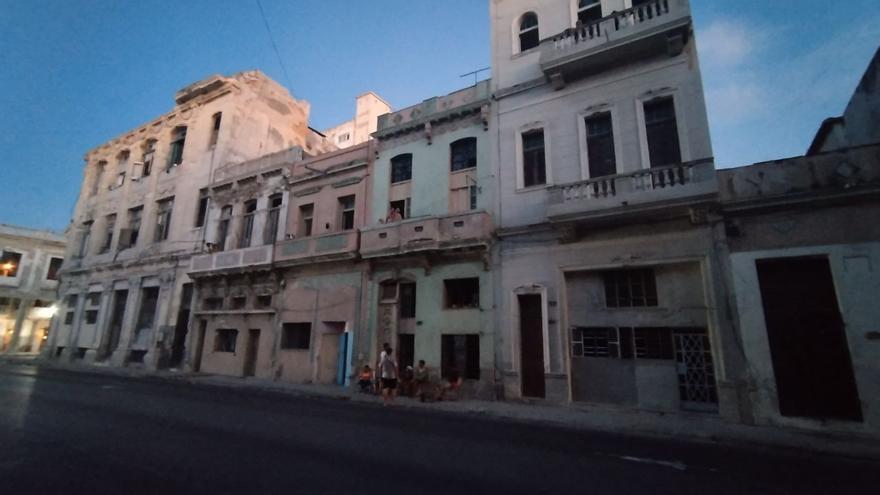
![]() 14ymedio, Madrid, 26 September 2023 — Another hard October is coming, despite the promises. The Cuban authorities are reinstating the measures they took during last year’s energy crisis, which include everything from the total or partial stoppage of production to the shutdown of air conditioning systems and telecommuting. The actions are to “reduce the consumption of electrical energy and make rational use of energy carriers,” and are “mandatory for all actors in the economy.”
14ymedio, Madrid, 26 September 2023 — Another hard October is coming, despite the promises. The Cuban authorities are reinstating the measures they took during last year’s energy crisis, which include everything from the total or partial stoppage of production to the shutdown of air conditioning systems and telecommuting. The actions are to “reduce the consumption of electrical energy and make rational use of energy carriers,” and are “mandatory for all actors in the economy.”
The information has been disseminated by Cuban Television journalist Lázaro Manuel Alonso, who has published on his Facebook profile the order of the provincial governments of Villa Clara and Cienfuegos with identical measures, so everything indicates that they will be extended to the rest of the Island.
The list calls for the cessation of all non-basic activity between 11 am and 1 pm, and from 6 to 10 pm. Air conditioning will be allowed only from 8 to 11 am, and electric ovens must be turned off during peak hours. Nor can water be pumped in that time slot, except in the case of supply to the population, which will be “reorganized.”
As for “continuous production” services, plans to organize the load will be applied, and the use of lighting must be reduced, especially in shopping centers and industry
As for “continuous production” services, plans to organize the load will be applied, and the use of lighting must be reduced, “especially in shopping centers and industry,” limiting use only to what is necessary for “safety.”
Owners of small businesses are concerned, since they are being asked to “disconnect refrigerators, refrigeration equipment and cold rooms during peak hours, as long as the condition of the products is not affected.” “Measures like that greatly affect the private sector of services,” says a user. “It acts to the detriment of income for the forms of non-state management, which in turn harms salaries, investments, etc.; because at the time when income decreases, there will invariably be salary cuts and replanning of budgets, which, coupled with the taxes that exist, could lead to the bankruptcy of more than one. Private companies are not rescued from bankruptcy at the expense of the state budget,” he reflects.
The authorities have also asked the residential sector to apply the measures and to be responsible consumers. They indicate that priority will be given to fuel delivery, health services, funeral homes, electric barriers and solid waste collection, among others.
The information from the Energy Council of Cienfuegos is dated last Thursday, September 21, and offers more exhaustive and bureaucratic details, although it includes some picturesque data such as the intention to “activate youth contingents for the promotion of savings measures” or systematically publish in the media and institutional networks the importance of the rational use of energy.
In addition, it urges the “control by the energy councils in each territory of the consumption of non-state forms of management so that they don’t increase usage, taking as a reference the historical average consumption.”
“The issue is more about fuel than the thermoelectric plants,” Alonso responds laconically
“So to save, do we paralyze the country?” a user asks. “We have to motivate workers in the electricity sector. There are no qualified personnel in the thermoelectric plants; everyone has looked for other alternatives in the face of the economic crisis,” he says, adding that the 2,000 pesos/month these workers earn are insufficient even for transportation. “The issue is more about fuel than the thermoelectric plants,” Alonso responds laconically.
In the last month, Cuba has continued to receive significant amounts of Venezuelan oil, despite the fact that PDVSA decreased the barrels exported. The Island obtained, however, its generous share of 65,000 barrels per day from Caracas, more than the estimated average in the 2000 agreements (although less than what it received in the best moments). Also, the arrival of Mexican oil tankers to the national ports has been numerous in recent months, including the one in progress.
With these data, Cubans already see more closely the prolonged blackouts in a systematic way, like the ones occurred in September and October 2022, ending with the departure from the position of the previous Minister of Energy and Mines, Liván Arronte. The arrival of his replacement, Vicente de la O Levy, coincided with a slight improvement encouraged by the December weather, and he announced a series of scheduled maintenance that would leave the thermoelectric plants ready for May, in addition to committing to a year with brief and infrequent blackouts.
At the same time, Cuban President Miguel Díaz-Canel continued to plan international alliances to capture crude oil, which has been ineffective in the face of the very deep crisis that the country is experiencing.
Translated by Regina Anavy
____________
COLLABORATE WITH OUR WORK: The 14ymedio team is committed to practicing serious journalism that reflects Cuba’s reality in all its depth. Thank you for joining us on this long journey. We invite you to continue supporting us by becoming a member of 14ymedio now. Together we can continue transforming journalism in Cuba.
